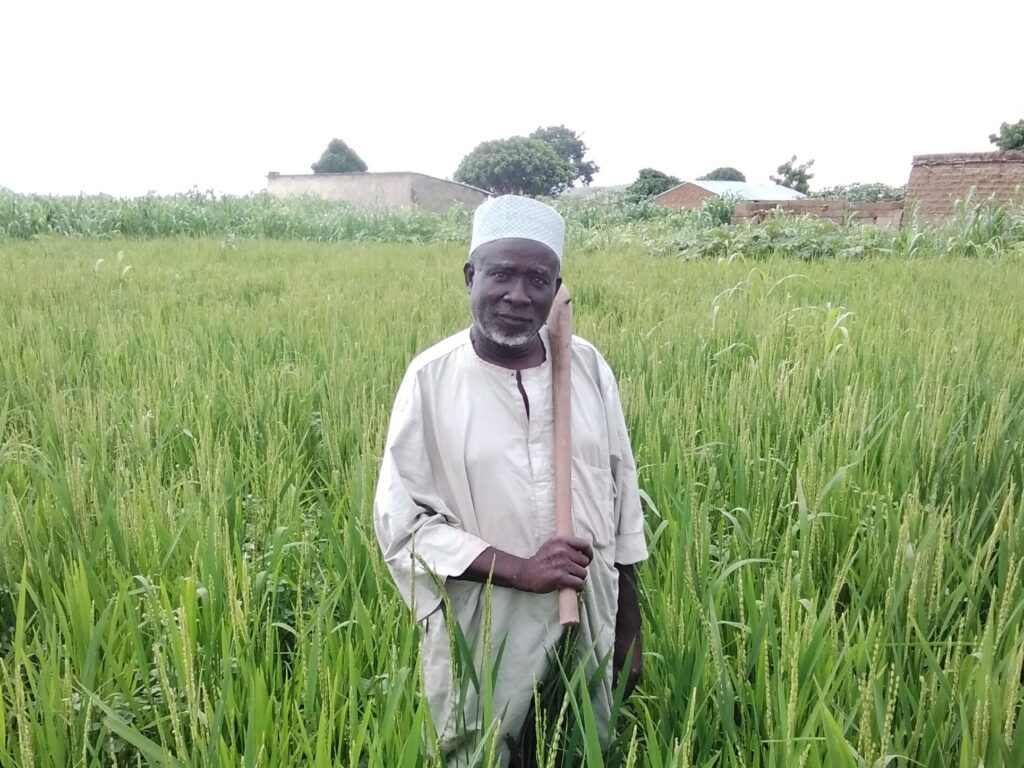If you’re reading this on World Hunger Day and considering how you or your organization can do more, please get in touch with us to learn how you can be part of these solutions.
A powerful change is unfolding across northern Nigeria’s agricultural landscape. Smallholder farmers in Katsina and Kaduna States have faced enormous challenges with food security and economic stability amidst the cascading impacts of the pandemic and global crises. And yet they are also leading a transformative movement to build more prosperous and resilient communities across the country.
Confronting Hunger in Nigeria
Hardship is not new to these communities. Unpredictable weather patterns, limited access to modern agricultural tools and practices, and inadequate educational opportunities have trapped many families like Mallam Garba Surajo’s in a cycle of subsistence farming and poverty. Mallam’s family faced the harsh reality of hunger season—dwindling food supplies between planting and harvest—for years due to low farm productivity and their vulnerability to climate and economic shocks beyond their control.
Mallam’s story is not unique. It has been repeated for generations and echoes the experiences of thousands of smallholder farmers around the world today. But even as the climate shifts, markets crash, and resources become scarce, farmers like Mallam have persisted in seeking opportunities to grow.
A Different Approach: Building Rayuwa’s Foundation
In 2019, Pyxera Global partnered with the John Deere Foundation on an ambitious mission: to improve the livelihoods and resilience of Nigerian smallholder farmers by investing in the farmers of today and tomorrow. Following a rapid needs and opportunities assessment, we launched the Rayuwa Project.
We envisioned a unique approach for Rayuwa (“life” in the language of the Hausa people of northern Nigeria): a holistic, demand-driven approach to community development built on Pyxera Global’s decades of experience in this delicate and challenging work.
Scaling Success: From Pilot to Expansion Across Communities
Rather than focusing on a single aspect of rural life, like food security, Rayuwa integrated sustainable agriculture, quality education, and economic equity to create a holistic, community-driven system that enables farmers, their families, and entire villages to thrive.
It began as a pilot in 11 villages in 2019, but as farmers like Mallam joined the program and spread the word, it quickly expanded to 44 villages in 2021, 85 villages in 2022, and 128 villages by 2023. And the results are remarkable.
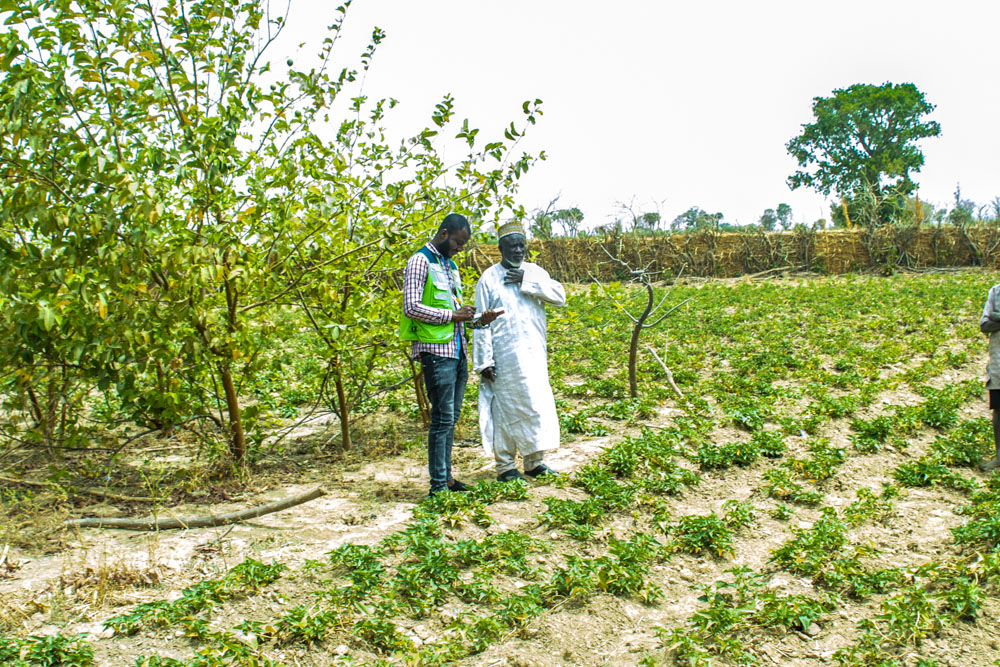
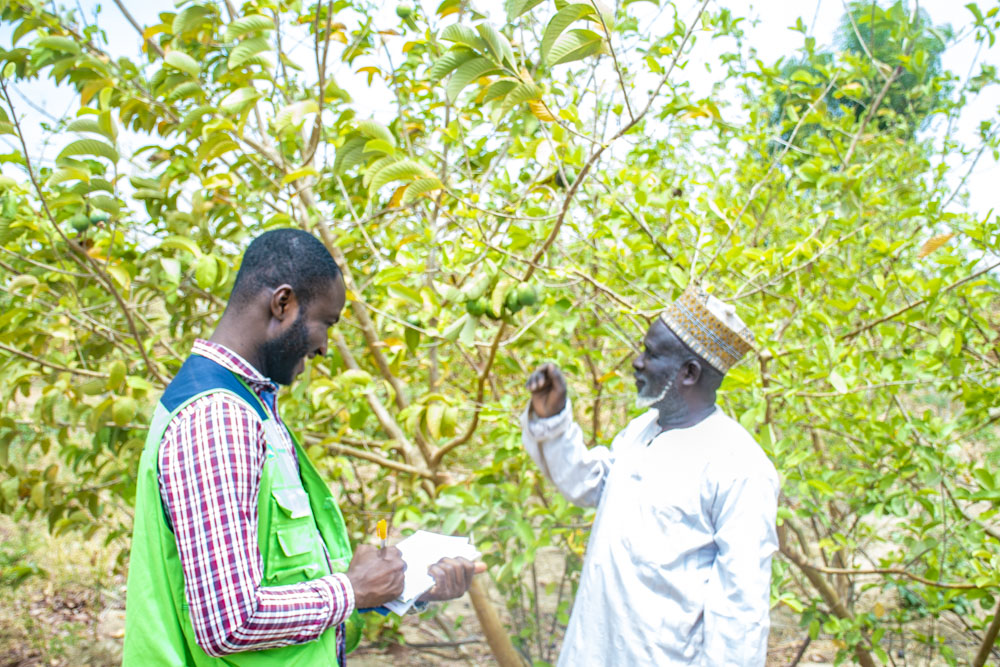
Rayuwa’s success is built on three core pillars:
- Resilient Agriculture. Farmers are trained in climate-smart Good Agricultural Practices (GAPs), leading to increased yields and income. In 2023 alone, farmers earned an additional $3.8 million USD from staple crops.
- Quality Education. The program has reached 22,195 students across 44 government schools, significantly improving literacy and numeracy. The program also covers adult education and business training, with 240 local entrepreneurship trainers and role models who have supported and mentored 7,119 entrepreneurs and can continue serving their communities for many years to come.
- Economic Equity. Through Village Savings and Loan Associations (VSLAs), farmers diversified their incomes and savings to earn an additional $3.9 million in 2023, a 50 percent increase from the previous year. Rayuwa also actively promotes women’s participation, with 39 percent of women farmers trained in good agricultural practices and 76 percent participating in farmer cooperatives.
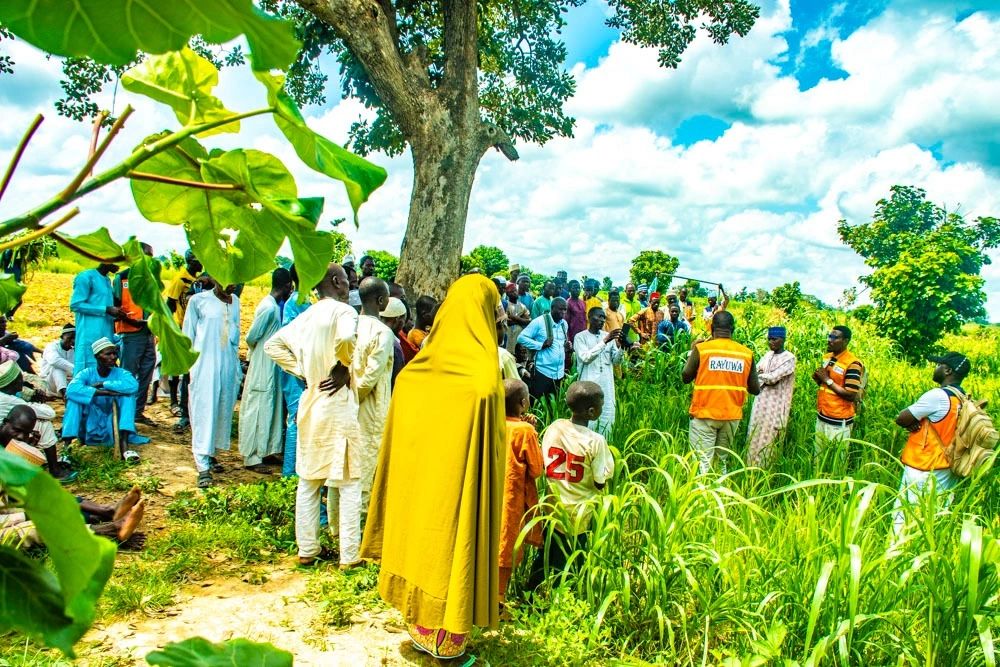
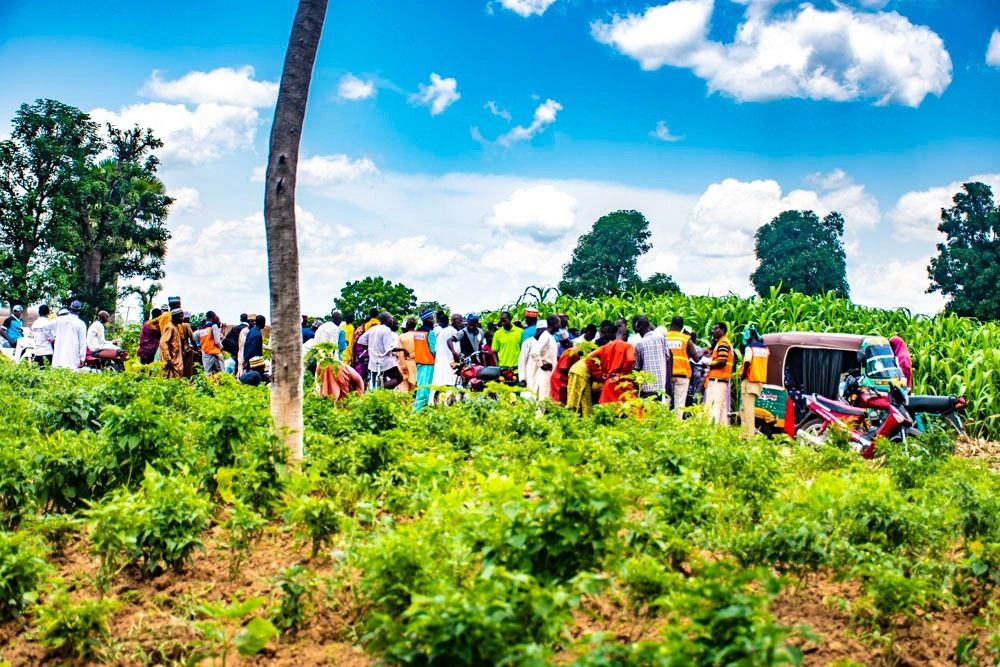
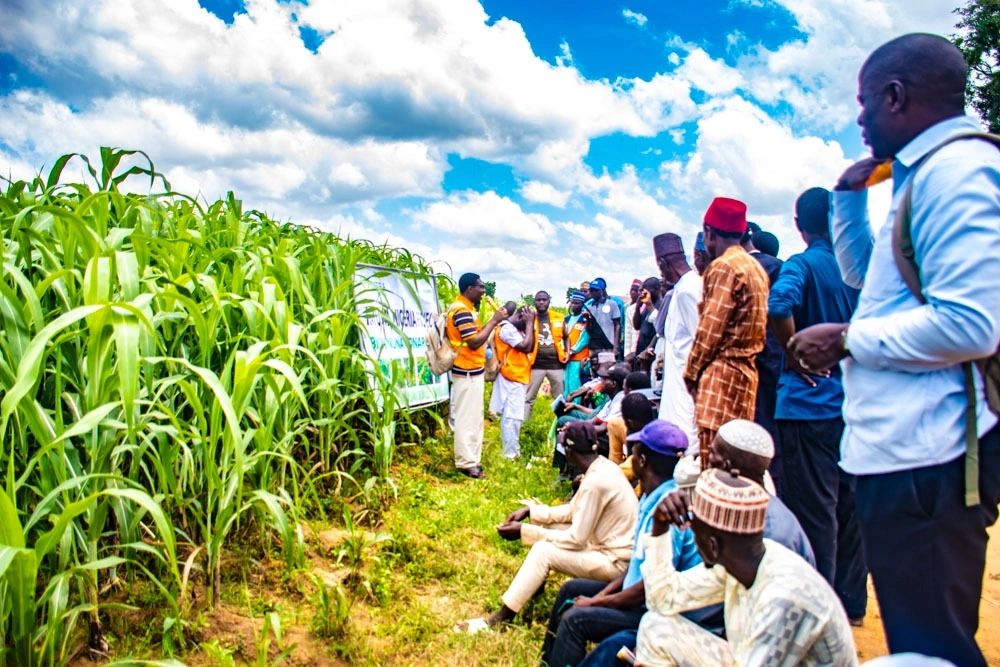
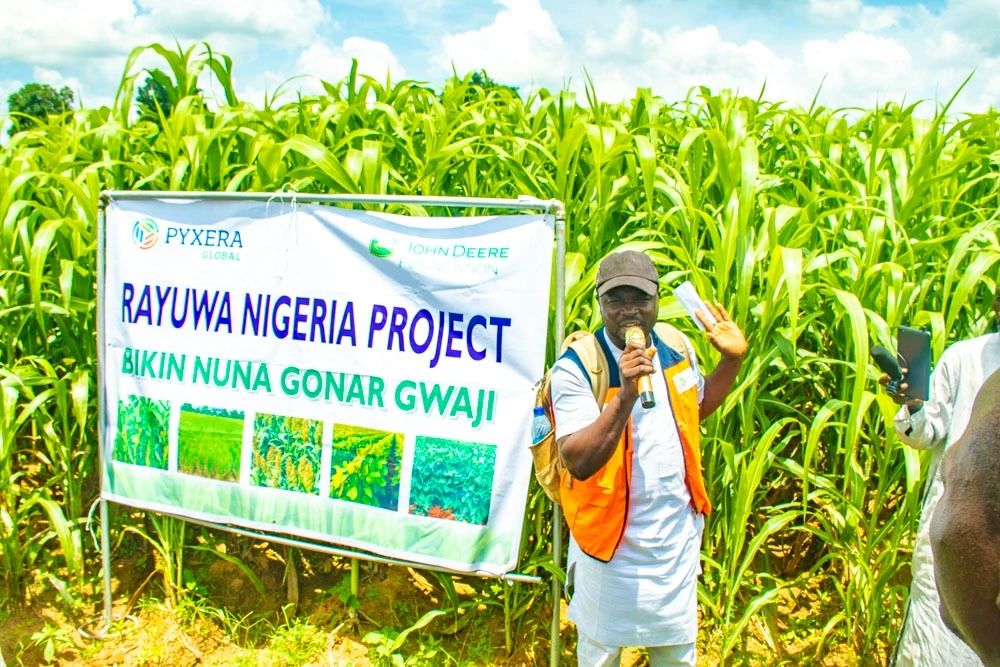
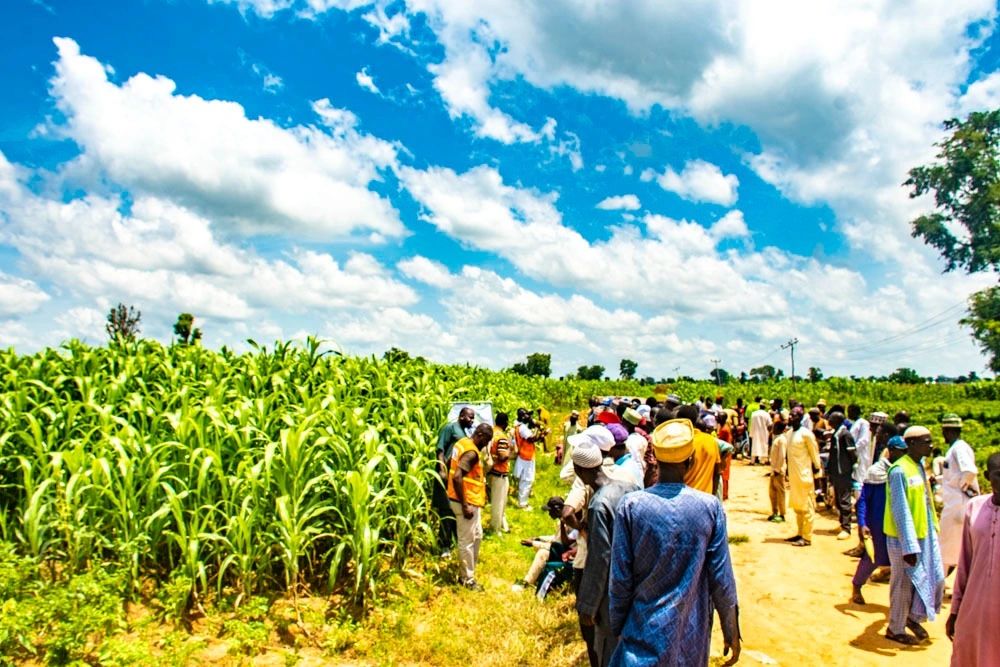
Today, Mallam’s farm is flourishing. His grain production has skyrocketed, and he has diversified his crops and livestock. He now meticulously documents sales and expenditures to manage his growing enterprise and even leads the first all-male VSLA in his area. Most importantly, his family—more than a dozen strong—is secure, with his children in school and the hunger season a challenge of the past.
Rayuwa has succeeded in building systems that resonate with local needs and solve their most pressing challenges. But if we wish to replicate Rayuwa’s success in other contexts to serve countless other families and communities, we must understand why this model for regenerative community development works.
The Power of a Holistic Model: Why Rayuwa Works
As Rayuwa transitions to complete local ownership in 2024, we can see that lasting food security is achieved through more than agricultural, educational, and economic development alone. Only by investing in communities—local leaders, market integration, and strong partnerships—can a truly virtuous cycle of progress take root.
- Community Ownership. By centering local leadership and fostering community ownership of the program, Rayuwa ensures that development can be sustained long after our direct involvement ends. Indeed, the financial institutions and agricultural and educational professionals who make the program possible already operate with minimal support.
- Market Integration. Rayuwa has strengthened linkages between farmers and critical value-chain actors by bolstering the governance and function of farmer groups, cooperatives, and unions. Rayuwa’s entrepreneurship trainers also continue to support new businesses, and the VSLAs continue to provide the necessary capital for growth and innovation.
- Government Partnerships. By strengthening farmers’ access to government services and officials, Rayuwa’s success has also caught the attention of state governments eager to replicate its model to support their constituents. In 2022, we expanded the program to Kaduna State with the government’s support. In 2023, the Commissioner of Katsina State invited us to explore opportunities to scale up the project’s activities across the whole state, which could amount to a monumental ten-fold amplification of Rayuwa’s impact from 13,756 farmers to over 140,000 farmers in the region.
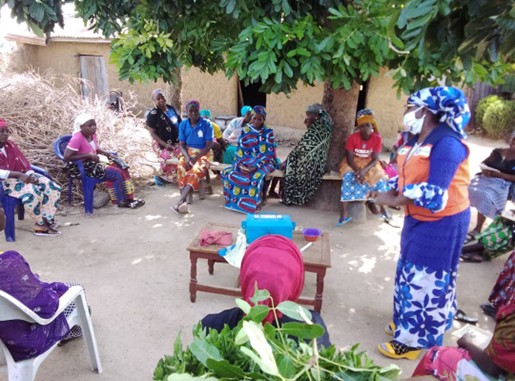
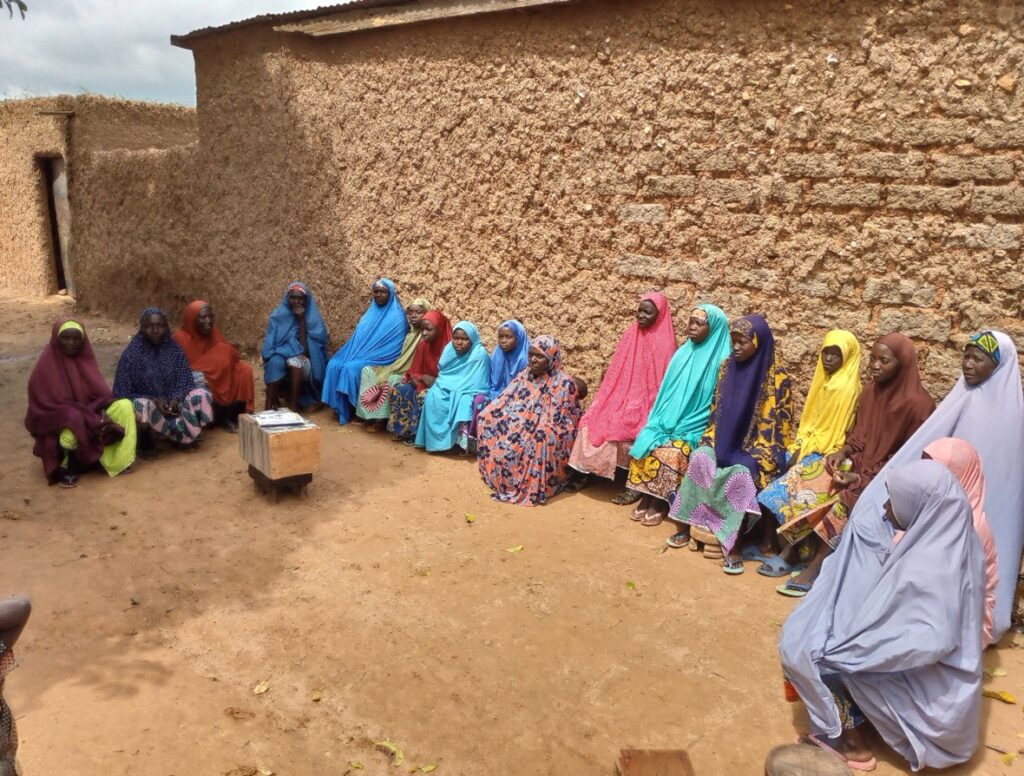
Rayuwa’s Legacy
Rayuwa leaves behind more than a slew of impressive statistics. The robust connections these communities have built through Rayuwa are the product of five long years of intensive and careful organizing and investment, but they will strengthen the region for generations to come.
That is why Rayuwa is such a compelling model for regenerative and community-centered solutions; it is an equitable and effective model for global engagement that can be readily adapted to other contexts—a critical need as millions still face hunger and poverty in Nigeria and around the world.
Looking Ahead: Applying Rayuwa’s Lessons Across Regions
Rayuwa’s legacy will soon be entirely in the hands of the Nigerian people—the farmers who today labor to support their families and the farmers of tomorrow seeking their own opportunities. That alone is no small feat, given that traditional philanthropic and international development efforts often fail to yield sustainable changes in the communities they aim to serve.
As we look to the future, we are eager to apply lessons from Rayuwa to our programs in other regions and contexts. Indeed, Rayuwa’s vision was informed by insights from our JIVA project in India, one of the strongest examples of our adaptive approach to global engagement and commitment to continuous learning and improvement. So what’s next?
A Call to Action: Creating Equitable, Regenerative Systems
Just as we did with Rayuwa, we look forward to deepening our other cross-sector collaborations, too, leveraging the strengths of all our partners to create even more transformative and scalable solutions for strengthening livelihoods in communities around the world.
Rayuwa is more than a success story; it is a call to action. It shows us that with the right approach, partnerships, and commitment, we can create equitable and regenerative systems that enable all communities to thrive.
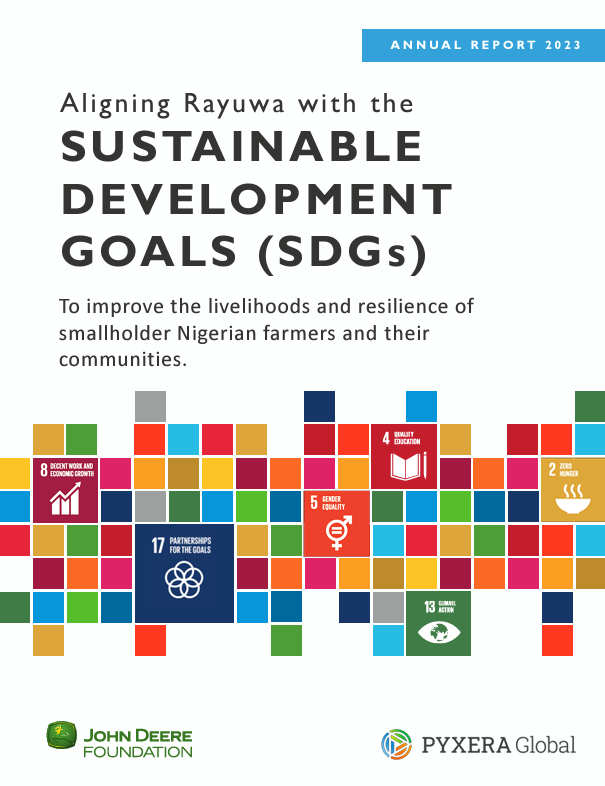
Want to learn more? Read the full report!
Click here to read our 2023 Annual Report on aligning Rayuwa with the United Nations’ Sustainable Development Goals, which includes even more data, insights, and stories about this remarkable program—and from the Nigerian people who make it possible.
Inspired by Rayuwa’s achievements, Pyxera Global is deepening its focus on creating lasting change by prioritizing regenerative practices and circular economy principles that ensure every community has the opportunity to thrive. This means designing programs that address root causes of inequality and prioritizing the inclusion of those often left out of traditional systems.
We believe real progress requires working alongside communities, sharing what we learn, and collaborating across sectors to drive meaningful change. With over three decades of experience, we continue to explore new ideas and build strong partnerships to address our world’s most pressing challenges together.
